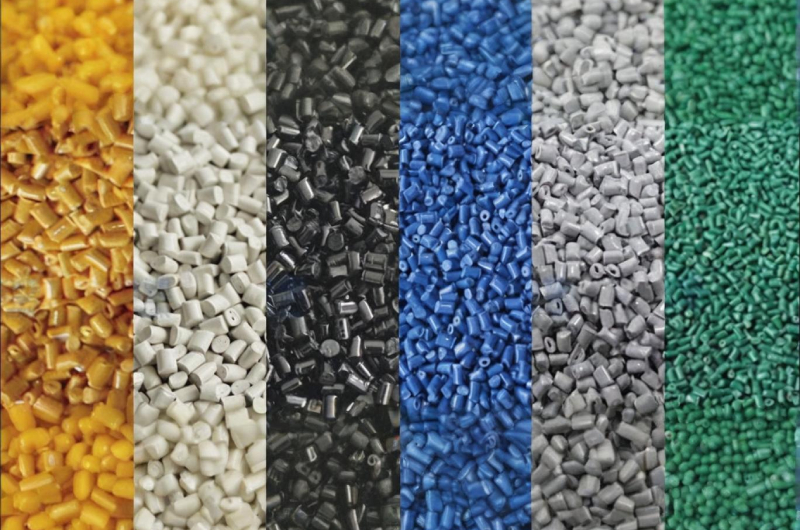The core of PPSU particles is a granular material made of polyphenylene sulfone (PPSU), which belongs to the category of high-performance thermoplastic engineering plastics. PPSU particles can be processed into various products through injection molding, extrusion and other processes. PPSU particles rely on the core advantages of “high temperature resistance, safety, and strong toughness” and focus on high-performance plastic raw materials for mid-to-high-end safety and industrial scenarios.
What is PPSU
PPSU (scientific name: polyarylene sulfone, also known as polysulfone) is an amorphous, high-performance thermoplastic. Compared with PSU and PEI, it has better impact resistance and chemical resistance. Tests through high-pressure steam sterilization failure experiments have proven that PPSU has excellent hydrolysis resistance, surpassing other amorphous thermoplastics.
In fact, PPSU can be placed in a steam sterilization environment an unlimited number of times, and high-pressure steam is widely used as a sterilization method for medical components, making PPSU a good material choice for medical equipment. Its synthesis process is similar to that of PSU, with the monomer being 4,4′-biphenol. Its molecular chain contains a large number of biphenyl groups, so its thermal performance is better than that of PSU, with a Tg of about 220°C, and it can be used for a long time in an environment of 180°C.
PPSU color code
| color | black | Natural color | light blue | Dark blue | green | yellow | grey | red | White |
|---|---|---|---|---|---|---|---|---|---|
| Color | BL001 | N000 | BB09 | DB0099 | GR350 | Y159 | GG6126 | R8040 | W002 |
| Example |
Features & Advantages of PPSU
Polyphenylsulfone (PPSU) is a high-performance thermoplastic featuring outstanding toughness, hydrolysis resistance, and repeated steam sterilization capability, widely used in medical, food-contact and safety-critical applications.
Continuous service up to 180℃; maintains stability under high heat exposure.
Exceptional toughness and drop resistance, suitable for demanding applications.
High clarity, making it ideal for baby bottles, food trays, and medical devices.
Withstands thousands of steam sterilization cycles without degradation.
Excellent resistance to γ-rays and X-rays; suitable for medical sterilization.
Good compatibility with detergents, disinfectants, and many chemicals.
Retains mechanical strength and shape under thermal and mechanical stress.
Excellent insulation and dielectric properties over a wide temperature range.
Complies with FDA and food-contact standards; widely used in baby care products.
Supports injection molding, extrusion, machining, and complex part fabrication.
PPSU Performance Table
Typical values for uncolored products at 23°C
| project | Test Method | unit | Typical values |
|---|---|---|---|
| Mechanical properties | |||
| tensile strength | ISO 527-1/-2 | MPa | 70 |
| Tensile modulus | ISO 527-1/-2 | MPa | 2270 |
| Yield elongation | ISO 527-1/-2 | % | 7.8 |
| Bending strength | ISO 178 | MPa | 105 |
| flexural modulus | ISO 178 | MPa | 2400 |
| Izod notched impact strength | ISO 180/A | kJ/m² | 68 |
| Thermal performance | |||
| Heat deformation temperature HDT/A @1.8MPa | ISO 75-1/-2 | ℃ | 196 |
| Glass transition temperature (DSC, 10℃/min) | ISO 11357-1/-2 | ℃ | 220 |
| Linear expansion coefficient@23℃ | ISO 11359-1/-2 | E -6 /K | 55 |
| flame retardancy | |||
| Thickness 1.5 mm | UL94 | Class | V-0 |
| Electrical properties | |||
| Volume resistivity 100 V | IEC 60093 | Ω·m | >1E13 |
| Surface resistivity 100 V | IEC 60093 | Ω | >1E15 |
| Relative dielectric constant@100 Hz | IEC 60250 | 3.8 | |
| Relative dielectric constant@1 MHz | IEC 60250 | 3.7 | |
| Dielectric loss factor @100 Hz | IEC 60250 | E -4 | 15 |
| Dielectric loss factor @1 MHz | IEC 60250 | E -4 | 86 |
| Dielectric strength K20/K20 (60×60×1 mm³) | IEC 60243-1 | kV/mm | 44 |
| Comparative tracking index | IEC 60112 | 150 | |
| General and processing properties | |||
| density | ISO 1183 | g/cm³ | 1.29 |
| Saturated water absorption @23℃/50% relative humidity | ISO 62 | % | 0.6 |
| Molding shrinkage (parallel) | ISO 2577, 294-4 | % | 0.9 |
| Molding shrinkage (vertical) | ISO 2577, 294-4 | % | 1 |
| Melt index MFR @365℃/5 kg | ISO 1133 | g/10 min | 28–38 |
| Melt temperature range (injection molding/extrusion molding) | ℃ | 350–390 | |
| Mold temperature range (injection molding/extrusion molding) | ℃ | 140–180 | |
| Note: Typical values should not be interpreted as specifications. | |||

